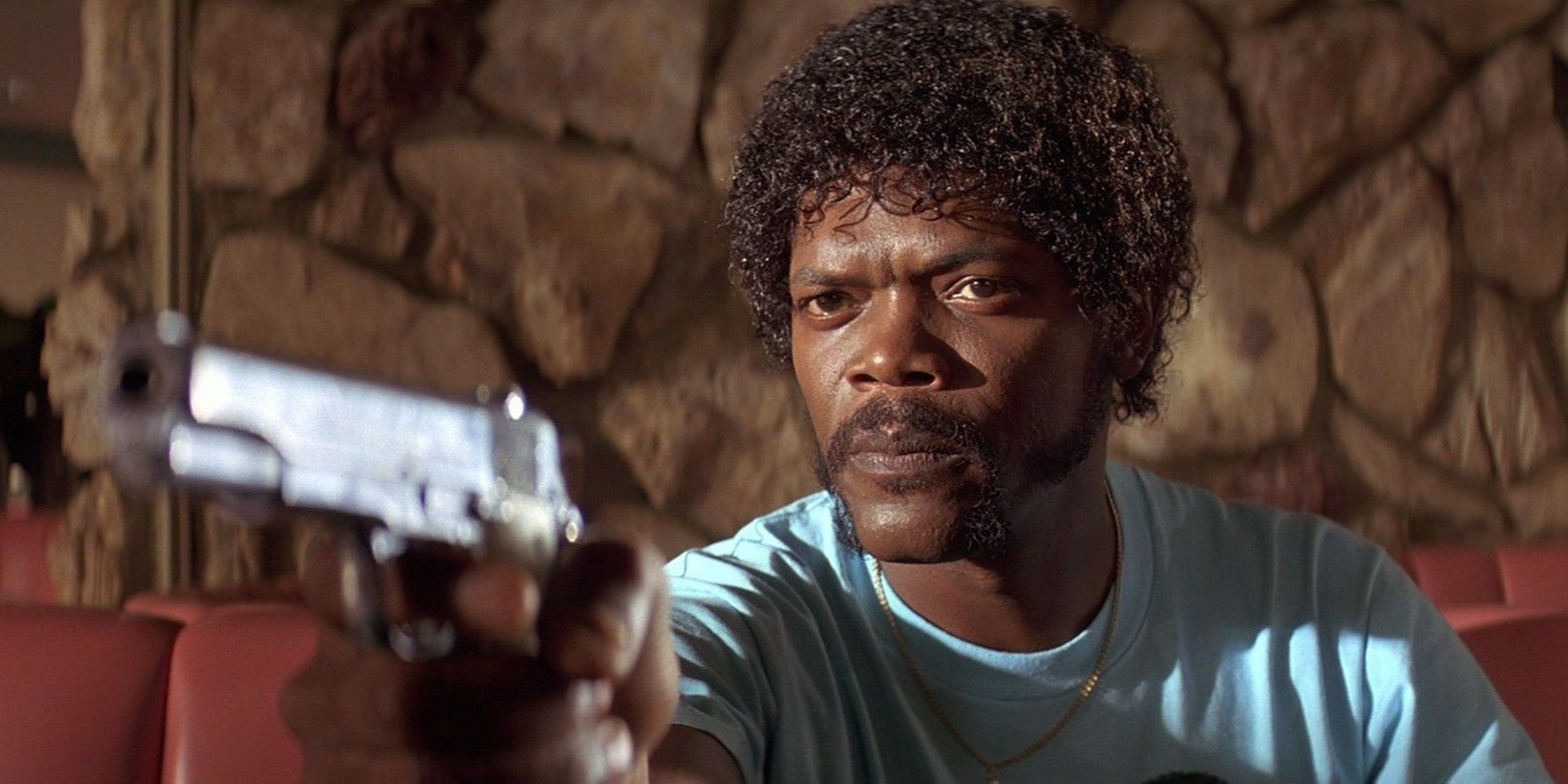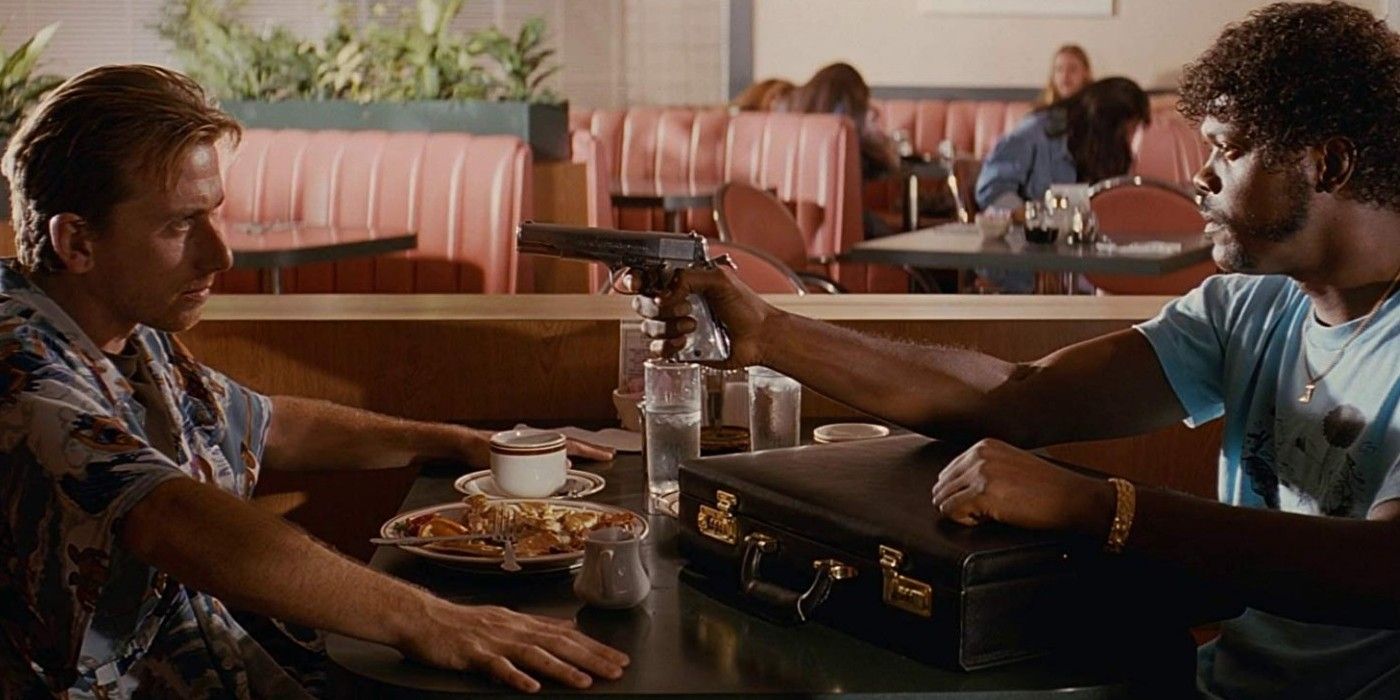Pulp Fiction actor Samuel L. Jackson has recently revealed that the original script for the film contained a scene in which his character killed the diner robbers seen at the beginning and end of the movie. Pulp Fiction was the second feature film written and directed by now Hollywood legend Quentin Tarantino. The film tells several interconnected stories, including narratives following two gangsters, a boxer, and a pair of lovebird diner robbers. Pulp Fiction was a major hit at the time of its release in 1994 and was nominated for seven Oscars, winning Best Original Screenplay. The film has since gone on to become regarded as a modern classic.
Jackson has had a long working relationship with Tarantino. Over the course of the director's career, Jackson has appeared in six of Tarantino's films. However, his role as Jules in Pulp Fiction is perhaps his most iconic and well-remembered outing in a Tarantino film. Jules is a gangster who, after witnessing what he claims to be a minor miracle, decides to change his ways and leave his life of crime. At the end of the film, Jules single-handedly stops the two diner robbers and lets them go free, admitting that before his enlightenment, he would have killed them both. It is the culmination of his entire character arc throughout the film.
In a recent interview on the Happy Sad Confused podcast, Jackson has revealed that in Pulp Fiction's original script, the audience actually would have seen Jules kill the robbers. According to Jackson, in the original script, before Jules lets them go, the audience would see an imagined scene in which Jules would "shoot him in the face and shoot Honeybunny off the counter." Jules would then open his eyes, and decide to make a different choice. See Jackson's full quote below:
“In the diner, when Tim Roth asks me to open that briefcase when I do it, I shoot him in the face and shoot Honeybunny off the counter. When I open my eyes, they’re still there, because that’s what I would have done before [Jules] had transitioned.”
While this certainly would have been an exciting scene, and have been a clever misdirect, it is likely that many fans will agree with Tarantino that the scene is not necessary. Jackson is a very talented actor and the audience learns everything they need to about why Jules makes the decision he does through Jackson's delivery of his dialogue with no need for gratuitous violence. In the final cut, the scene is more subtle and gives the character a more peaceful ending.
Pulp Fiction was Jackson's first appearance in a Tarantino film, but it's very easy to see why it was not the last. Jackson gives a stellar performance (for which he was nominated for an Oscar) and conveys the character's inner change so well that he made an entire scene obsolete. So far there is no word on when the next time Jackson and Tarantino will reunite, however, Tarantino has often stated that he only plans to make ten films, and he is currently at nine. Many viewers would agree that it wouldn't feel right for his final outing to be without Jackson. But until that movie, whatever it is, is announced, audiences can always return to Pulp Fiction to see the pair's original collaboration.
Source: Happy Sad Confused


